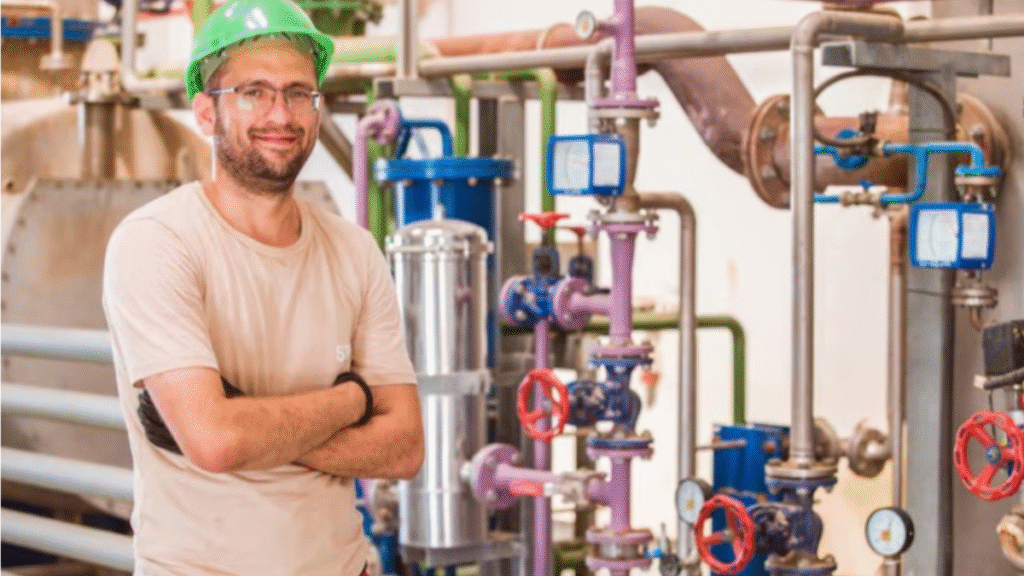Maintaining the efficiency and longevity of a water heater is essential for any home, especially when hard water is part of the daily supply. Scale buildup—caused by calcium and magnesium deposits—can significantly reduce water heater performance, leading to higher energy costs and premature system failure. Hard water is a common issue across many households, and without proper treatment, it can slowly damage appliances that rely on heated water. We will explore how installing a water treatment system can prevent scale buildup, improve water quality, and protect your investment in home comfort and efficiency.
The Role of Water Treatment Systems in Preventing Scale Buildup
1. Understanding the Cause of Scale Formation
Scale buildup occurs when hard water minerals, such as calcium and magnesium, are heated inside a water heater. As the temperature rises, these minerals separate from the water and crystallize, attaching to the heating element and the interior walls of the tank. Over time, the buildup thickens, creating a layer of insulation that hinders the heater’s ability to warm the water efficiently. This added strain increases energy use, shortens the unit’s lifespan, and can even cause it to overheat or fail. Understanding the cause of scale formation is the first step in effectively combating it. Homeowners who work with Veterans Heating and Cooling can implement water treatment systems that prevent scale buildup, ensuring the long-term health and efficiency of their water heating systems.
2. How Water Softeners Reduce Mineral Content
One of the most effective ways to prevent scale buildup is through a water softener system. These systems use an ion exchange process to remove calcium and magnesium ions from hard water, replacing them with sodium or potassium ions. By softening the water, the minerals responsible for scaling are minimized before the water enters the heater. As a result, the internal components of the water heater remain clean and efficient. Water softeners also enhance other daily activities, such as bathing, cleaning, and laundry, by allowing soap to lather more easily and preventing mineral residue on fixtures. The continuous flow of treated water protects not just the water heater but also the plumbing system, dishwashers, and washing machines from the harmful effects of mineral accumulation. Over time, this leads to reduced maintenance costs and a noticeable improvement in appliance performance.
3. The Impact of Filtration Systems on Water Quality
Filtration systems play a complementary role in maintaining the health of water heaters. Unlike softeners, which target mineral removal, filters focus on eliminating impurities such as sediment, rust, and chlorine that can also damage a water heater. Sediment buildup, for instance, can settle at the bottom of a water heater tank, creating a barrier between the heating element and the water. This not only reduces heating efficiency but can also lead to corrosion and unpleasant odors. By installing a whole-home filtration system, homeowners can ensure that clean, debris-free water circulates through their plumbing and appliances. Cleaner water translates to fewer blockages, improved taste, and better overall household water use. When paired with a softener, a filtration system provides comprehensive defense against both scale and contamination, resulting in a cleaner, longer-lasting water-heating system.
4. Descaling and Maintenance Benefits
Even with treatment systems in place, some maintenance is still required to ensure continued performance. However, the presence of a water treatment system greatly reduces the need for frequent descaling or flushing of the water heater. Without a system, mineral deposits can accumulate rapidly, necessitating costly cleaning or professional servicing. With treated water, the scale forms at a much slower rate, allowing the heater to operate efficiently with minimal maintenance. Homeowners who use water softeners or filters often notice fewer performance issues, lower repair bills, and a more stable supply of hot water. Furthermore, preventive maintenance, such as annual system inspections and occasional filter replacements, ensures that both the treatment and water heating systems run smoothly. Over time, this not only saves money but also enhances convenience and peace of mind.
5. Energy Efficiency and Cost Savings
Scale buildup forces a water heater to work harder, using more energy to heat water as it passes through the insulating layer of minerals. This increased workload can significantly raise energy bills. By installing a water treatment system, homeowners can prevent this inefficiency and maintain optimal heater performance. Studies have shown that even a small layer of scale can reduce heating efficiency by up to 30%. With soft or filtered water, the heating element remains clean, ensuring that energy is used effectively. The result is consistent water temperature, faster heating times, and lower energy costs. In the long run, these savings often outweigh the initial investment in a water treatment system. Additionally, the extended lifespan of the water heater reduces the need for early replacement, providing substantial financial benefits. Cleaner water and better energy use combine to create a sustainable solution that benefits both homeowners and the environment.
Scale buildup in water heaters is a common yet preventable issue that affects both the performance and longevity of these appliances. By incorporating water treatment systems such as softeners and filtration units, homeowners can eliminate hard water minerals and impurities before they reach the heater. These systems not only prevent damage but also improve efficiency, reduce energy costs, and enhance overall water quality. Investing in a water treatment solution ensures long-term savings, comfort, and peace of mind—making it a smart choice for protecting one of your home’s most essential systems.







